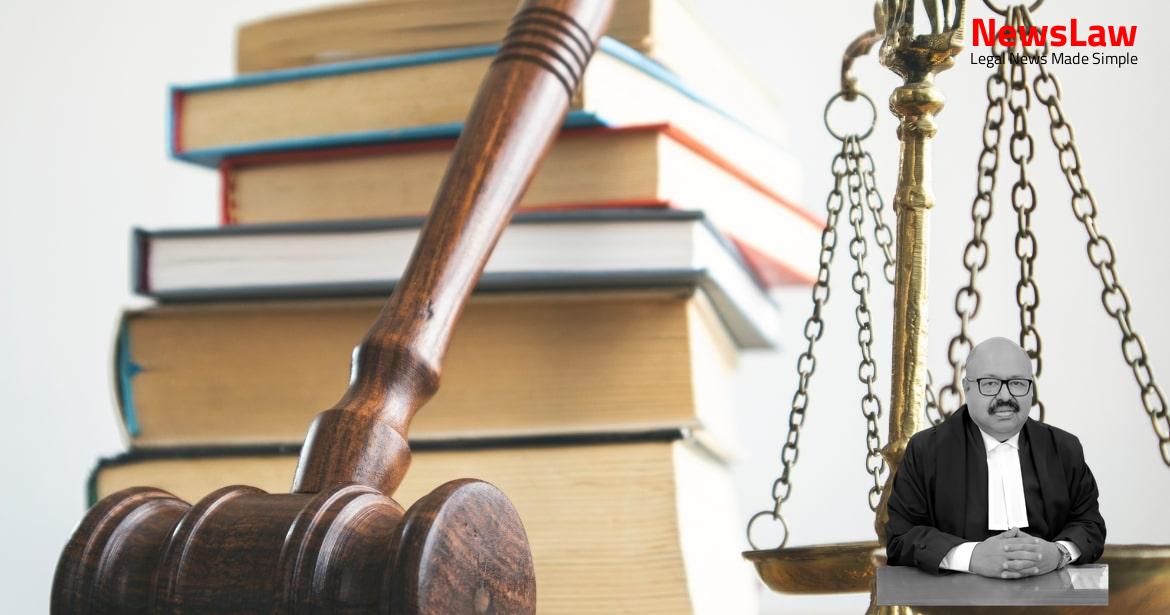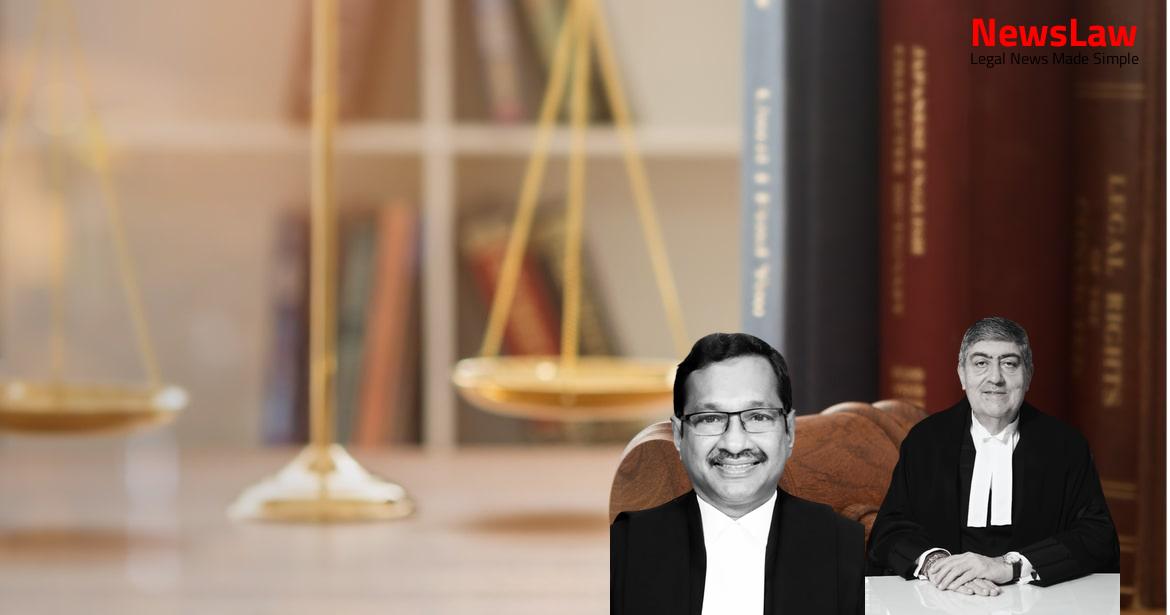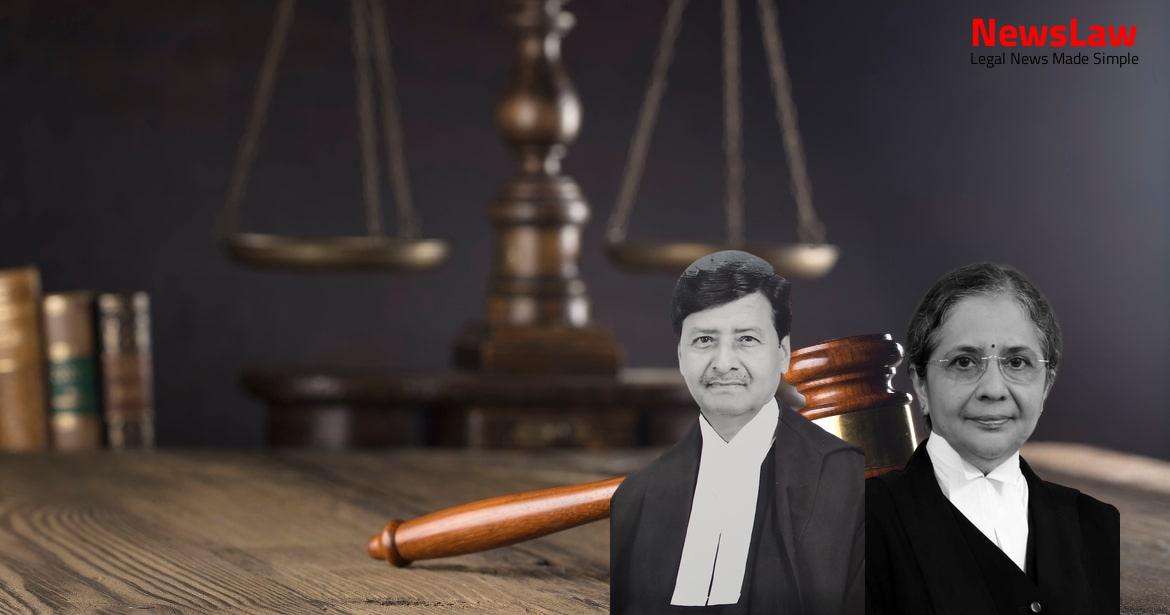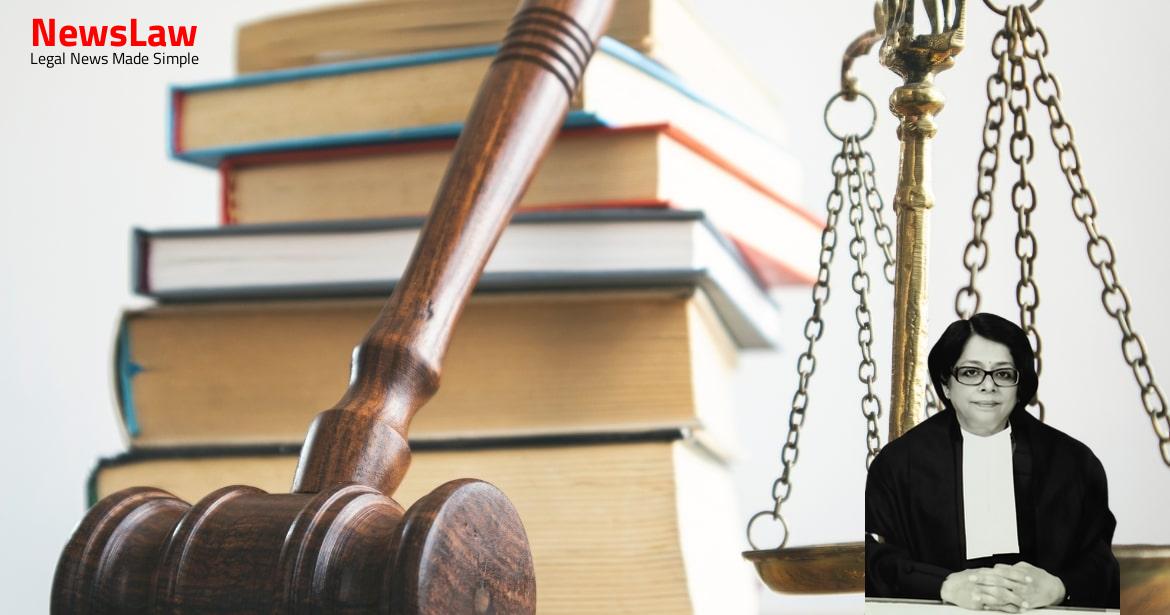In a significant legal case concerning a land partition dispute, the Supreme Court of India delivered a crucial judgment on joint ownership rights. The case involved a dispute over ownership and partition of a property, with complexities regarding mortgage transactions and ancestral property claims. The Supreme Court’s ruling sheds light on the legal aspects of joint ownership in property disputes, setting a precedent for future cases.
Facts
- Special Civil Suit filed by Sumara Umar Amad seeking partition of land in Dhinchna village, Jamnagar.
- Plaintiff claimed joint ownership right to half share of the property due to mortgage transactions with father.
- Defendant No.1, father of the plaintiff, disputed joint ownership claim and stated the property was purchased before plaintiff’s birth.
- Defendant No.1 claimed absolute right to sell the property due to financial situation.
- High Court allowed appeal in part, setting aside decree in Regular Appeal No.130 of 2005 but maintained judgment in Regular Civil Appeal No.130 of 2005.
- Appellants, who were third parties, were deemed to have no locus to challenge Lower Appellate Court’s decision.
- Adverse judgments in first and second appeals led to the present appeal by the defendants.
- The Trial Court dismissed the suit by judgment and decree dated 17.04.1982.
- The Lower Appellate Court reversed the judgment and decree of the Trial Court, declaring the plaintiff’s right over half share of the suit schedule property.
- Plaintiff appealed against the Trial Court’s decision through a Regular Appeal under Section 96 of the Civil Procedure Code in R.C. Appeal No.130 of 2005.
Also Read: Solapur Municipal Corporation vs. Majarewadi Gram Panchayat Employees
Issue
- The Lower Appellate Court was questioned on whether it erred in overlooking the principles of Mohamedan Law.
- The issue centered around the entitlement of the plaintiff as determined by the Lower Appellate Court.
- The question of whether the principles of Mohamedan Law were considered properly by the Lower Appellate Court was key to this part of the judgment.
Arguments
- Original purchasers in the suit are not considered bonafide purchasers, affecting the appellants’ claim as subsequent purchasers.
- High Court framed substantial questions of law during admission of the appeal but failed to address them in the final judgment.
- Confirmation Deeds executed by the plaintiff ratifying Sale Deeds further weaken the plaintiff’s claim.
- Sale Deeds in question are not presented in the record, raising issues regarding their validity.
- High Court’s failure to consider all relevant aspects necessitates a remand for further examination.
- Appeals under Section 100 require substantial questions of law to be considered.
- Learned Senior Counsel for the respondents seeks to uphold the judgment of the High Court.
- The respondent, the plaintiff, has a legitimate interest in the property in question with specific Survey No. 36/4.
- The appellants have no claim over the said property, making their grievances baseless.
- The sale of the property was done through two Sale Deeds on different dates, totaling 23 Acres 27 Guntas.
- The High Court acknowledged the appellants’ claim that the decree went beyond the judgment but ensured that the decree aligns with the judgment.
- The appellants’ confirmation does not cover the entire extent, and thus, they cannot thwart the plaintiff’s claim.
- The appellants’ purchase during the court proceedings subjects them to Section 52 of the Transfer of Property Act.
- The High Court addressed the substantial questions of law raised in its judgment.
Also Read: Jagdishchandra v. Joint Charity Commissioner & Ors.
Analysis
- The Lower Appellate Court’s decree may go beyond the judgment as it initially declared the plaintiff’s ownership of half share in the ancestral property and directed to draw a preliminary decree.
- The question of the plaintiff’s ownership of a half share in the suit property through a gift by his grandfather needs to be determined by the Lower Appellate Court.
- The Lower Appellate Court’s findings regarding the plaintiff’s ownership of a half share in the suit property through gift and ancestral property share are deemed inconsistent and require clarification.
- The decree drawn up by the Lower Appellate Court should align with the judgment and be in accordance with the law.
- Concerns raised on the Lower Appellate Court drawing the decree based on a compromise with third parties, without proper partition or challenge to sale deeds by the original defendant.
- The High Court admitted the Second Appeal based on substantial questions of law framing. The parties’ arguments were only recorded, leading to unanswered questions in the judgment.
- Various applications and contentions regarding the appeal process and the substantiated questions of law were not properly addressed or answered by the High Court.
- The involvement of third parties claiming interest in the subject matter led to complexities in the decision-making process and required thorough examination.
- The evidence regarding the plaintiff being gifted a half share in the property by his grandfather is not supported by concrete proof and lies beyond the initial pleadings.
- The nature of the appellants’ claim and their rights needed detailed scrutiny rather than a general reference to the Transfer of Property Act.
- The decree shall align with the judgment and contain specific details such as suit number, names and descriptions of parties, their addresses, and particulars of the claim.
- It should clearly outline the relief granted or any other decision made in the suit.
- The decree must include the amount of costs accrued during the suit and clarify who is responsible for payment and from what source.
- The court has the authority to direct that costs owed by one party to another may be offset against any admitted or found due sum from the latter.
- The documents created at the end of the Regular Appeal, potentially altering the parties’ rights, need examination.
- The effect of the purchase made by the appellants in relation to the Confirmation Deed needs to be considered.
- The applicability of Section 52 of the Transfer of Property Act in light of the Confirmation Deed requires analysis.
- Equitable distribution of shares post purchase during the suit pending period is a crucial issue.
- Proper consideration by the High Court is essential to address the substantial questions of law effectively.
- If additional evidence is warranted for justice, the High Court may remit the matter to the Trial Court or Lower Appellate Court.
Decision
- The matter is remitted to the High Court of Gujarat at Ahmedabad to restore Second Appeal No.12 of 2014 on file.
- The High Court is instructed to reconsider the appeal in light of the observations made and in accordance with the law.
- All pending applications related to the appeal shall be disposed of.
- In the given circumstances, the parties are directed to bear their own costs.
- The judgment dated 19.10.2016 passed in Second Appeal No.12 of 2014 by the High Court of Gujarat at Ahmedabad is set aside to enable the reconsideration.
Case Title: GAJARABA BHIKHUBHA VADHER ORS. Vs. SUMARA UMAR AMAD (D) THR LEGAL HEIRS . (2020 INSC 39)
Case Number: C.A. No.-000260-000260 / 2020



